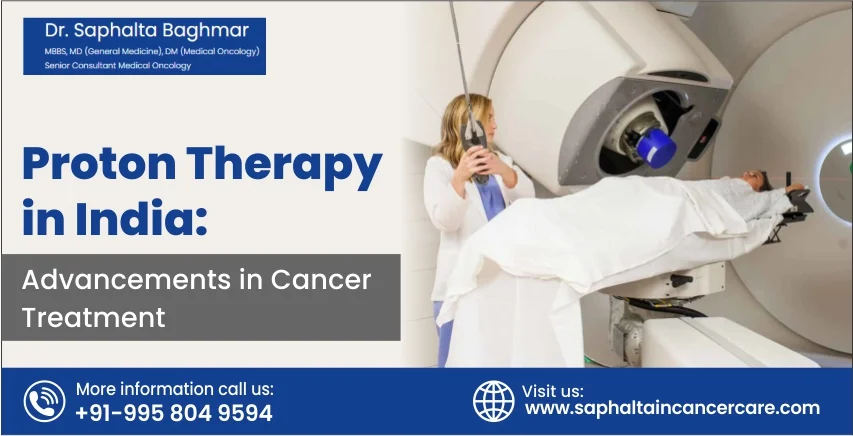What are gastrointestinal cancers?
Gastrointestinal malignancies are cancers that develop in the gastrointestinal system. The following are frequent symptoms of gastrointestinal cancer:
- Esophageal cancer: Oesophageal cancer is a kind of cancer that affects the oesophagus (the long tube that leads to the stomach).
- Liver cancer
- Gall bladder
- Pancreatic cancer
- Stomach cancer
- Colon cancer: cancer of the large intestine
- Rectal and anus cancer: Cancers of the rectum and anus
What are the causes and risk factors for GI cancer?
There are some common causes and risk factors that lead to an increased chance of gastrointestinal cancer:
- Excessive smoking and alcohol consumption
- Advancing age
- Obesity and a sedentary lifestyle
- Diet which has a high concentration of animal fat
- Underlying conditions like acid reflux in the oesophagus
- Hepatitis B or hepatitis C virus infection or liver cirrhosis also increase the chances of cancer.
- Helicobacter pylori infection in the stomach
- A very small percentage of cancers can be inherited from a family member.
What are the major symptoms of gastrointestinal cancer?
The following are the most common cancer symptoms:
- Excessive abdominal pain which is persistent
- Abdominal bloating
- Bleeding from the rectum or the presence of blood in the fecal matter
- Excessive nausea and vomiting
- Loss of appetite and weight loss
- Stomach tenderness
- Diarrhoea or constipation
- Difficulty swallowing is common in people with esophageal cancer.
- People with gastric cancer might also face symptoms like indigestion.
The symptoms of different types of cancer vary according to the location of the cancer. And in case you are suffering any of the above-mentioned symptoms then at the earliest connect with Dr Saphalta. She is the best Stomach Cancer Specialist in Delhi NCR.
How is gastrointestinal cancer diagnosed?
The diagnosis of gastrointestinal cancer involves the following tests:
- Advanced imaging tests are done that include MRI, X-rays, CT scans, and PET scans. These tests provide better visualisation of abnormalities that are present inside the gastrointestinal tract.
- An endoscopy is done where the lining of organs like the oesophagus, stomach, and small intestine are examined. It provides a better understanding of the presence of tumours.
- Colonoscopy is a technique used to examine the interior of the colon and rectum for the existence of malignant growths.
- A Biopsy is one of the major tests that can help determine whether the tumour is cancerous or not. During a biopsy, a small sample of the tumour tissue is extracted and analysed.
- Blood tests are done to check for the signs of cancer like tumor markers CA 19.9 and CEA.
What are the different stages of gastrointestinal cancer?
Cancer staging is performed to determine the development of the tumour as well as its metastasis. Cancer is classified into four stages based on its severity: stage 1, stage 2, stage 3, and stage 4. Stage 4 is the most advanced stage when cancer has spread to other regions of the body.
The TNM method is another way to stage gastrointestinal cancer, with the T category explaining the extent of the primary tumour and its metastasis in the cellular layers of the gastrointestinal tract.
The N classification denotes cancer metastasis to adjacent lymph nodes.
The last category, M, describes the spread to other parts of the body, such as the liver and lungs.
What are the treatment options for gastrointestinal cancer?
There are numerous treatment options available for treating different types of gastrointestinal cancers. The choice of the treatment option depends upon a variety of factors, like the location of the tumour and its extent.
- Surgery: surgery is done for tumours that are present in locations that are easily accessible. During surgery, the cancerous tissue or organ is removed. After the tumour cells are removed, a technique called anastomosis is performed to join all of the remaining healthy organs and reconstruct the oesophagus or stomach. This aids in the restoration of function.
In cases where surgery is not an effective option, there are other treatments like:
- Chemotherapy is an advanced technique where strong drugs are injected to kill cancerous cells.
- Radiation therapy makes use of high-energy x-rays to minimise tumours.
- Targeted therapy and immunotherapy is done to target cancer cells present in specific locations and it does not affect healthy tissues. In few advance cases immunotherapy in also advised after doing certain tests.
Because gastrointestinal tract cancer can influence and hinder the normal functioning of the GI tract, it is critical to identify cancer at an early stage and begin treatment as soon as possible.
It is critical to seek the advice of an experienced oncologist for treatment and diagnosis.
Dr Saphalta Baghmar is a cancer specialist with expertise in medical oncology. She has successfully treated numerous cancer patients and is well-equipped to handle gastrointestinal tract cancer. Dr Saphalta is one of the best doctors for cancer therapy in Delhi NCR.
FAQs
1. Can gastric cancer be cured?
The outlook for gastric cancer mainly depends on the stage at which it is diagnosed. In the earlier stages, it is easier to surgically remove the cancerous growth and get rid of the disease. On the other hand, a complete cure is less probable in the later stages as there is a high chance that the cancer has spread to other parts of the body. After a thorough examination and consultation with your cancer care team, you can determine if stomach cancer can be cured in your case.
2. What are the first warning signs of stomach cancer?
Problems like feeling frequently bloated and full, not feeling hungry, constant indigestion, nausea, and/or heartburn can be the early signs of stomach cancer. Some people also experience recurring belly pain, trouble swallowing, and unexplained weight loss. Bloody stools or blood in the vomit can be signs of a more aggressive stage of cancer. However, these symptoms can imply some other gastric conditions as well. Therefore, when experiencing any of these symptoms, it is best to consult with your doctor.
3. How does stomach cancer start?
Stomach cancer can begin as a cancerous growth on any part of the stomach, be it the inner lining or the outer surface. Over time, the tumor can spread to nearby tissues, organs, and/or lymph nodes. The rate of spread varies among individuals and mainly depends on the type and location of cancer.
4. What is the best treatment for stomach cancer?
In the early stages, surgery is the best cancer treatment. When paired with chemotherapy and/or radiotherapy, it can help in the complete eradication of the tumor. However, in the later stages, where surgical removal of the tumor is not possible, oncologists prefer chemotherapy and radiotherapy as the primary treatments. These can be paired together and/or with other techniques like immunotherapy, proton therapy, and others.
5. What are the symptoms of cervical cancer?
The common symptoms of cervical cancer include irregular vaginal bleeding in between periods, recurrent pelvic pain, vaginal bleeding after intercourse, and pain during intercourse. Some people also experience abnormally heavy watery or bloody discharge emitting a foul odor. In its initial stages, cervical cancer usually does not trigger any noticeable symptoms. The early indications appear when the cancer grows and affects the nearby tissues and organs. It is important to note that every individual may experience different symptoms, indicating the same disease. Also, these symptoms can be mistakenly attributed to other health issues associated with menstruation. So if the symptoms are persistent, it is advisable to share your concerns with your doctor and get a proper screening.
6. What are the risk factors for cervical cancer?
Women are at a higher risk of developing cervical cancer if they start having sex at an early age, have multiple sexual partners, or have unprotected intercourse frequently. This makes them more prone to be infected by human papillomavirus (HPV) which is a major causative agent of cervical cancer and many other sexually transmitted diseases. Sexually transmitted infections like syphilis, chlamydia, gonorrhea, and HIV/AIDS can also become precursors of this disease. Smoking and/or chewing tobacco is found to increase the risk of squamous cell carcinoma of the cervix. A weak immune system and unhygienic lifestyle can also contribute as a risk factor in some cases.
7. How often should I be screened for cervical cancer?
Women should ideally start having screenings for cervical cancer between the ages of 21 to 25, based on their sexual activity. For women between 21 to 29 years of age, pap smear tests are preferred for the purpose. Primary HPV tests, pap smear tests, or co-testing (combination of HPV and pap test) are suggested for women between 30 to 65 years of age. In case of normal results, pap smear tests should be repeated every three years while primary HPV and co-testing should be repeated at a five-year interval. Women who are over 65 can stop having screenings if they have no history of cervical cancer or precancer and their screening results during the past ten years have been normal. Cases of total hysterectomy where the cervix was removed due to any reason other than a precancerous or cancerous growth also do not require screenings.


